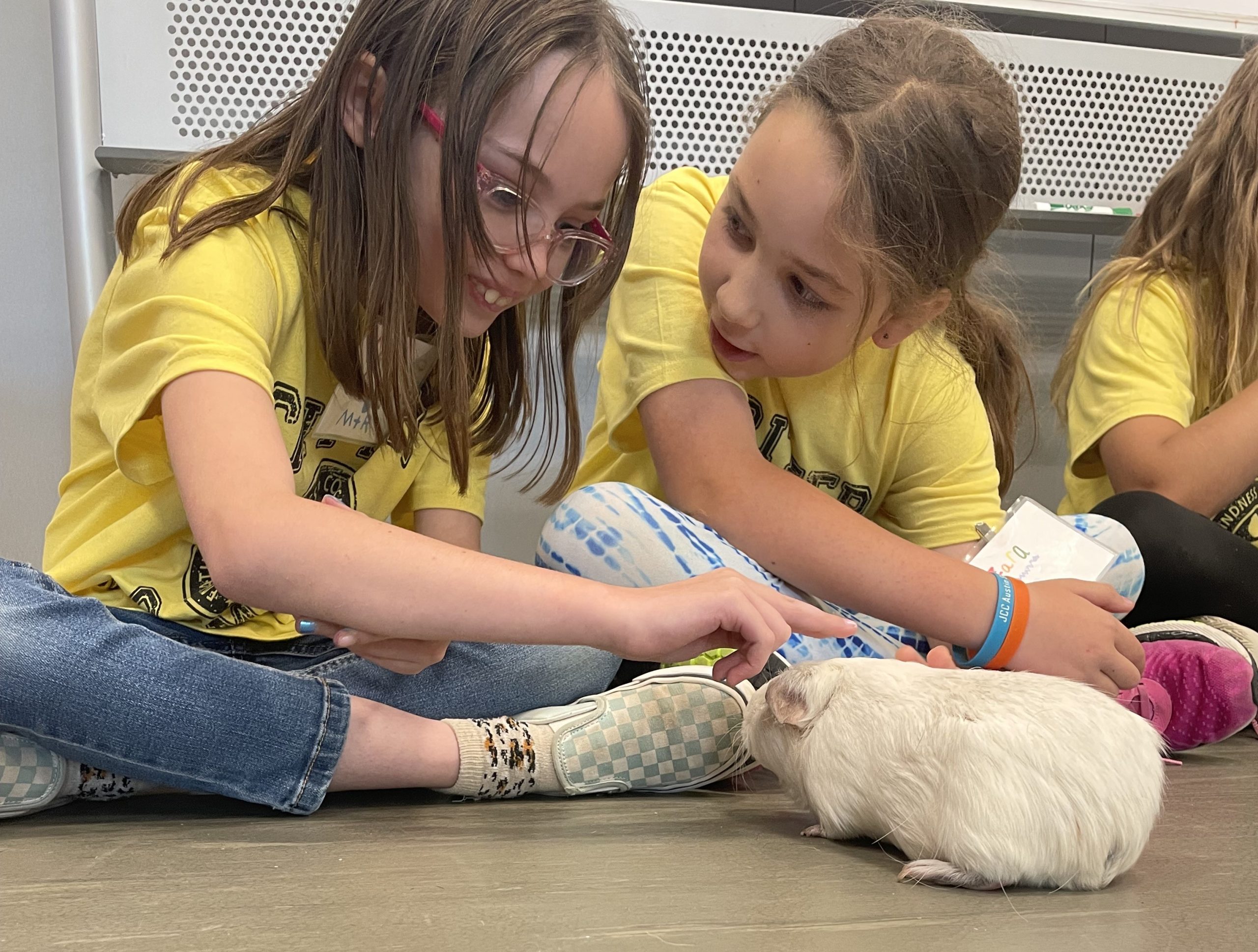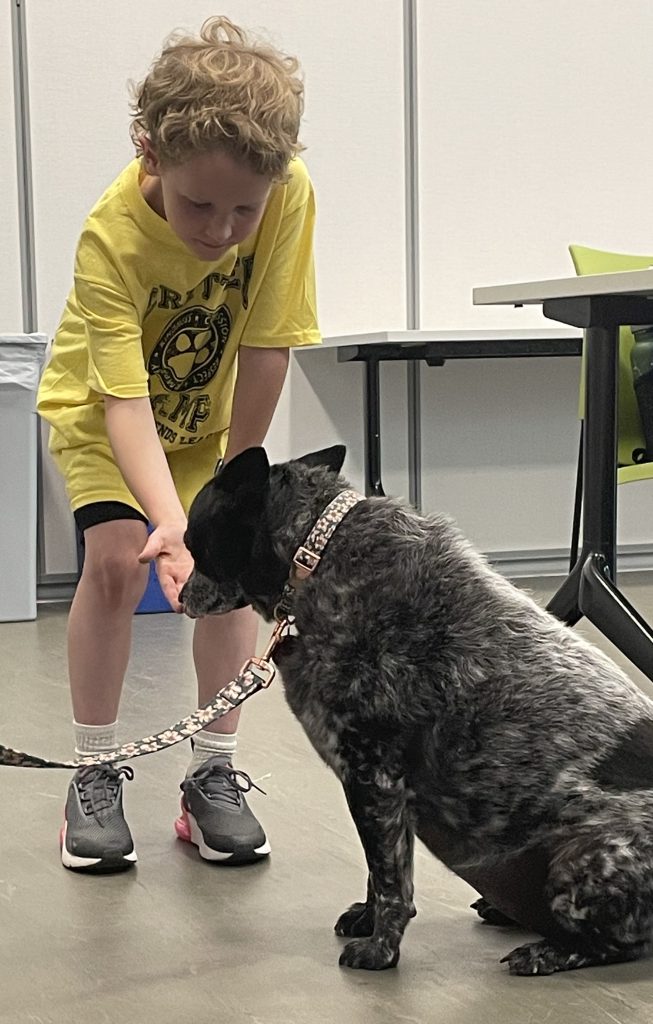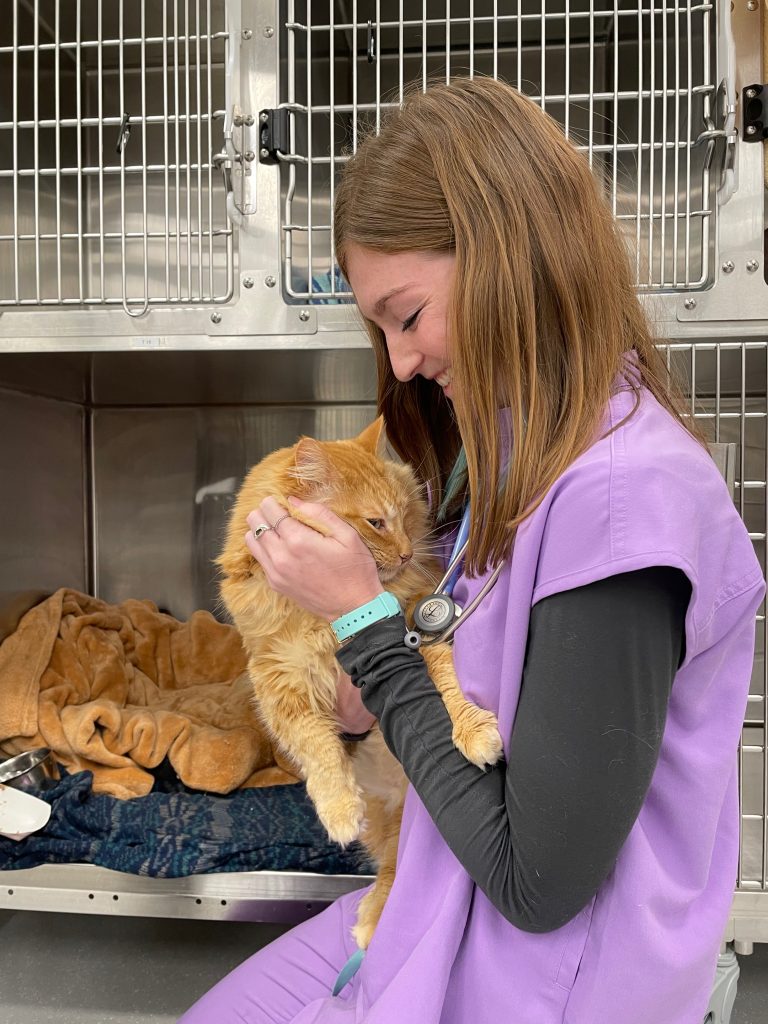
In a world where empathy sometimes seems in short supply, humane education is perhaps more important than ever before. As an organization, the Dumb Friends League works not only to alleviate animal suffering, but to prevent it from happening altogether. One way we do this is by bringing communities together through humane education to foster respect for animals, people, and the planet we share. In so doing, we hope to encourage our students to seek humane ways of being in connection with others, including animals of all species.
Humane education, at its core, is all about interconnection. Indeed, this One Health approach draws connections between human, animal, and environmental well-being, with the goal of encouraging consideration and compassion for all. Research indicates that, for children and youth, participating in humane education activities can increase empathy and prosocial behaviors, enhance self-regulation, and cultivate feelings of kinship with other animals (Kalof et al., 2015; Komorosky & O’Neal, 2015; Ngai et al., 2021).
Our humane education programming for youth
Last year, the League reached nearly 12,000 children, youth, and adults with humane education. In our outreach with young people, we inspire early appreciation for each animal’s unique nature, regardless of their background, appearance, or ability. Children and adolescents learn how to communicate safely with animals, provide for their welfare, and treat others with kindness so that all beings are cared for and valued. Here are the learning and volunteer programs we offer:
Tales for Tails
A program for students, aged 7-17, to practice their reading skills in a nonjudgmental space while helping to socialize cats, dogs, and equines prior to adoption.
Paint and Pets Workshop
In this 90-minute workshop, 8-12-year-olds create custom pet portraits to promote the adoption of our long-term shelter residents.
Pawsitive Service Day
During this two-hour experience, 8-11-year-old children receive a behind-the-scenes shelter tour, learn about animal care, and contribute to our work by completing a special service project.

Youth Camps
In these one-day and four-day “Critter Camps,” we provide children in third through fifth grade with tools to make responsible, compassionate decisions about the animals and people in their lives. In STEM Career Camps, students of all ages and many from underserved communities visit our Veterinary Hospital at CSU Spur to learn about animal care and welfare careers.
Junior Volunteer Day
Participants aged 12-15 gain hands-on shelter and volunteer experience, including cleaning kennels, walking dogs, and interacting with animals big and small.
Junior Volunteer Club
A unique opportunity for 12-15-year-olds looking for a comprehensive learning and volunteer experience. Shifts include working with adult volunteers and staff as they tend to the daily needs of animals in our shelter. The club meets once monthly for five months and is offered twice a year.
Group Events
Ideal for homeschool groups and scout troops interested in educational or volunteer experiences with animals.
Community Programs
These programs are designed for classrooms and are adaptable for a variety of ages. Topics range from being respectful with a new dog to exploring careers in animal welfare. Interacting with “Ambassapets,” or animals belonging to League staff and volunteers who have passed internal behavior testing, often make lessons especially engaging and relatable for students.
For additional program information and to sign up, please click here.
From Junior Volunteer to Veterinary Intern
Years ago, these very programs had quite the impact on one of our newest veterinary interns, Dr. Meagan O’Brien. At our Veterinary Hospital at CSU Spur and Leslie A. Malone Center shelter, we offer practical education through externship and internship programs for people entering veterinary medicine. Student externs enroll in two-week rotations, while recent veterinary graduates receive one year of supervised experience with incremental diagnostics, surgery, and client care. Meagan, who participated in the League’s Critter Camps and Junior Volunteer Clubs when she was young, started her internship as a new veterinarian in June. “I’m very excited to be coming home,” she said at the time.

Meagan was so dedicated to our humane education programming that she also helped run several summer camps following her first year of undergrad at CSU. As a program participant and leader, Meagan’s love for shelter animals and the science of veterinary medicine only grew stronger. “The Dumb Friends League is really what got me interested in shelter medicine, as it was a relatively new field,” said Meagan. “I loved being in the animal shelter and volunteering.”
During veterinary school at Kansas State, Meagan was also an extern with our program and worked with her university’s Shelter Medicine Department, where community outreach was a focus. Today, she uses her background in humane education when speaking with clients and the public about the importance of caring for owned and homeless pets in their communities.
Working in our shelter and at CSU Spur, a community campus based in One Health, is a perfect fit for Meagan (aka Dr. O’Brien). Not only does she take part in a shelter animal’s journey, but, at Spur, she has the opportunity to build empathic relationships with clients who are “absolutely deserving of care.” According to Meagan, “I think a huge part of providing accessible care and [decreasing] barriers is being that resource where clients can [safely] share, ‘Hey, I’m not sure. Can I ask you something?”
We’re so grateful to say we knew her when and today.
